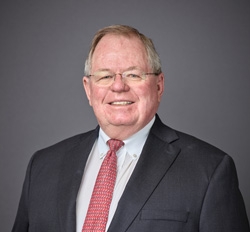DOL Issues Five New Opinion Letters Pertaining to the FLSA
On June 25, 2020, the Department of Labor issued five opinion letters providing guidance related to the Fair Labor Standards Act (“FLSA”). The opinions focus on exemptions to the FLSA’s requirement that employers pay their employees overtime at one and one-half times their regular rate of pay for time worked in excess of 40 hours per workweek.
Three of the five opinions addressed Section 13(a)(1) of the FLSA which is the outside sales employee exemption. To fall within this exemption and be considered an outside salesperson, the primary duties of the individual must be to “make sales” or “obtain orders or contracts for services” from a customer, and the employee must be “customarily and regularly engaged” in performing that duty “away from the employer’s place or places of business.”
In the DOL’s opinion, an employee that travels to different locations to sell products using his employer’s mobile assets (like a truck) qualifies for the outside sales exemption because the employee’s primary duties include making sales away from the employer’s place of business. Similarly, an employee that attends trade shops and fairs, makes his own sales and obtains orders from customers at these events, and has no connection to a third-party retailer, also falls within this exemption because the employee does not have a fixed work location and is actively making sales.
Next, the DOL clarified under which situations payments to employees from third-parties are considered wages. The FLSA defines “wage” to include certain non-cash items and, at times, a limited amount of tips received. Wages under the FLSA may include payments from a third-party in some circumstances. Whether third-party payments constitute a wage under the FLSA depends on the terms of the employment agreement and compliance with other FLSA requirements. An agreement to include third-party payments as part of the employee’s compensation may be implied based on the specifics of each case and the practices of the parties. The DOL opines that in order to determine whether incentive payments are considered wages for purposes of satisfying wage requirements under the FLSA, it is necessary to first examine the agreement between the parties, the understanding of practices of the parties, and any other relevant circumstances. Moreover, the DOL explained that when third-party payments are part of an employment agreement, and to the extent these payments constitute wages, records are to be kept and it must be part of an employee’s regular rate for purposes of calculating overtime under the FLSA.
For instance, the DOL established that a car manufacturer’s direct payments to automobile dealership employees compensating them for work done on behalf of the dealership may count towards the dealership’s minimum wage obligation. Because those payments were implicitly part of the employment agreement, the employees were aware of the specific incentive program terms, the employer communicated these terms to the employees, and the employer worked with incentive program sponsors to determine which payment should be made, the third-party payments were considered wages.
Finally, the DOL addressed the application of the retail or service commission sales exemption from the FLSA overtime pay requirements. That exemption, found at Section 7(i), applies if: (1) the employee is employed by a retail or service establishment; (2) the employee’s regular rate of pay exceeds one and one-half times the minimum hourly rate; and (3) more than half of the employee’s compensation for a representative period (not less than one month) consists of commissions on goods or services. The DOL opines that the FLSA does not prohibit an employer from using the Section 7(i) exemption when there is no prior established representative period, and instead, the employer is starting a representative period for a new employee or a new store simultaneously.
An employer may use Section 7(i) simultaneously with the commencement of the representative period. The DOL clarified, however, that if an employer chooses to do this and, at the conclusion of that initial representative period, Section 7(i)’s requirement that commissions constitute more than half of compensation for a representative period has not been satisfied, the employer must pay overtime premium compensation for any overtime hours worked during that period.
Employers should assess whether the DOL’s recent opinion letters have a bearing on their workforce and whether employees may be considered exempt in light of the new opinions. If you have any questions regarding the DOL’s recent opinion letters or the FLSA, please feel free to contact Kemp Smith’s Labor and Employment Department at 915-533-4424.
Three of the five opinions addressed Section 13(a)(1) of the FLSA which is the outside sales employee exemption. To fall within this exemption and be considered an outside salesperson, the primary duties of the individual must be to “make sales” or “obtain orders or contracts for services” from a customer, and the employee must be “customarily and regularly engaged” in performing that duty “away from the employer’s place or places of business.”
In the DOL’s opinion, an employee that travels to different locations to sell products using his employer’s mobile assets (like a truck) qualifies for the outside sales exemption because the employee’s primary duties include making sales away from the employer’s place of business. Similarly, an employee that attends trade shops and fairs, makes his own sales and obtains orders from customers at these events, and has no connection to a third-party retailer, also falls within this exemption because the employee does not have a fixed work location and is actively making sales.
Next, the DOL clarified under which situations payments to employees from third-parties are considered wages. The FLSA defines “wage” to include certain non-cash items and, at times, a limited amount of tips received. Wages under the FLSA may include payments from a third-party in some circumstances. Whether third-party payments constitute a wage under the FLSA depends on the terms of the employment agreement and compliance with other FLSA requirements. An agreement to include third-party payments as part of the employee’s compensation may be implied based on the specifics of each case and the practices of the parties. The DOL opines that in order to determine whether incentive payments are considered wages for purposes of satisfying wage requirements under the FLSA, it is necessary to first examine the agreement between the parties, the understanding of practices of the parties, and any other relevant circumstances. Moreover, the DOL explained that when third-party payments are part of an employment agreement, and to the extent these payments constitute wages, records are to be kept and it must be part of an employee’s regular rate for purposes of calculating overtime under the FLSA.
For instance, the DOL established that a car manufacturer’s direct payments to automobile dealership employees compensating them for work done on behalf of the dealership may count towards the dealership’s minimum wage obligation. Because those payments were implicitly part of the employment agreement, the employees were aware of the specific incentive program terms, the employer communicated these terms to the employees, and the employer worked with incentive program sponsors to determine which payment should be made, the third-party payments were considered wages.
Finally, the DOL addressed the application of the retail or service commission sales exemption from the FLSA overtime pay requirements. That exemption, found at Section 7(i), applies if: (1) the employee is employed by a retail or service establishment; (2) the employee’s regular rate of pay exceeds one and one-half times the minimum hourly rate; and (3) more than half of the employee’s compensation for a representative period (not less than one month) consists of commissions on goods or services. The DOL opines that the FLSA does not prohibit an employer from using the Section 7(i) exemption when there is no prior established representative period, and instead, the employer is starting a representative period for a new employee or a new store simultaneously.
An employer may use Section 7(i) simultaneously with the commencement of the representative period. The DOL clarified, however, that if an employer chooses to do this and, at the conclusion of that initial representative period, Section 7(i)’s requirement that commissions constitute more than half of compensation for a representative period has not been satisfied, the employer must pay overtime premium compensation for any overtime hours worked during that period.
Employers should assess whether the DOL’s recent opinion letters have a bearing on their workforce and whether employees may be considered exempt in light of the new opinions. If you have any questions regarding the DOL’s recent opinion letters or the FLSA, please feel free to contact Kemp Smith’s Labor and Employment Department at 915-533-4424.
















































